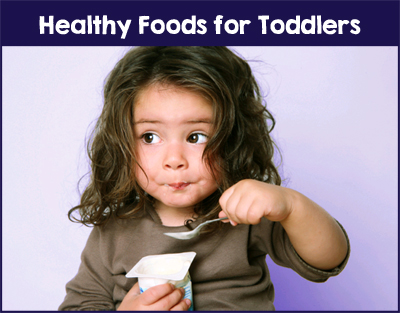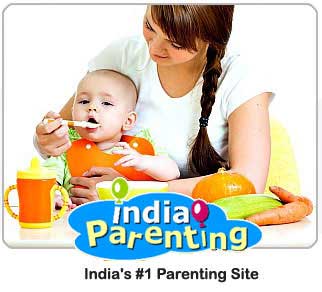For right growth and development of the baby, parents must make changes in the babys diet according to the babys age. Learn about the variations in babys diet according to his age so that he meets all the nutritional requirements. Let us first understand the concept of age appropriate diet. It simply implies to the diet that is suitable and proper for a child of the respective age; keeping in consideration his state of development at that particular time period. The objective is to ensure that the overall health of the kid is not compromised and he is effectively prevented from falling an easy prey to lifestyle diseases like obesity and childhood diabetes. Let us now categorise the babys diet according to his age: In this articleDuring the Initial 4 to 6 MonthsDuring 6 to 8 MonthsDuring 8 to 12 MonthsAfter the First BirthdayDuring the Initial 4 to 6 Months Right after birth to first four to six months the most important nutritional and dietary source of the child is the breastmilk of his mother. It meets all the necessary nutritional requirements that the child needs at that particular age. It is high in protein and fat that are the most essential elements for his development. In specific cases, one may resort to formula milk if the situation so demands. Feed the newborn 8-12 times or once every 2-4 hours. But this need not be a strict routine; doctors suggest that the best way is to fix up a feeding chart and also feed by demand. After four months, the baby will require 4-6 times of feeding everyday as quantity of breastmilk consumed, will enhance. Your physician is the best person to suggest whether the infant requires more frequent feeding, that is, if he is underweight, then you might be required to wake him up at night to feed him. After the completion of 4-6 months, the infant slowly makes a transition towards solid food. Note that you introduce solids after consulting your paediatrician, else there are chances that with sudden transition, the infant might choke. Here are some indications that the infant is ready for solid food: His birth-weight has become doubleWith a little support, the baby can now sit upThe baby indicates that he has had his fill by turning his head away or refusing to open his mouthHe shows interest in food when he finds other people eatingUsually, iron-fortified rice cereals meant for infants are first introduced to the infant, by mixing it with breastmilk or formula milk. Start with a thin consistency and gradually thicken it, as the baby becomes accustomed to it. At the start, it is usually twice a day with a 1-2 table-spoons of cereal powder, which can be later increased to 3-4 table-spoons as per doctors advice. You can change the cereal every week later on, to notice if the baby has a good tolerance or is allergic to anything in particular.During 6 to 8 Months Do not stop from giving breastmilk 3-5 times everyday at this stage, as cows milk is not recommended to infants below a year. By now the baby has tried different types of cereals; it is now time to try out strained fruits and veggies. Some tips: Try out one variety of strained fruit or vegetable at a time; wait for 2-3 days to check whether the baby is suffering from any allergies or not. Start off with plain veggies like peas, potatoes, sweet potatoes, beans and carrots. Go for fruits like apples, bananas, melons, apricots, pears and peaches. Increase the consistency of the food depending on the tolerance level of the baby. Start off with 2 table spoons and go up to 2 cups per day. You can introduce teething foods at this stage like, unsalted crackers, strips of toasts, bagels and doctor recommended teething biscuits. Avoid finger foods like nuts, chunks or slices of fruits as they may cause choking.During 8 to 12 Months Continue with breast milk for 3-4 times daily. By now the baby is ready for finely chopped meats. The iron stores for the baby get depleted by the time he reaches 8 months and breast milk do not provide him with adequate amount of iron. So, lean meats are the option now. Increase the servings for fruits and vegetable to 3-4 times a day. Eggs can be given 3-4 times a week. But note that you give him only the yolk as some babies are sensitive to the whites. After the First Birthday With the completion of one year, most babies are off the bottle. Now you can replace the breastmilk with formula milk or whole milk. Do not use skimmed milk as the babies now require the fatty calories for growth and development. Other dairy products like cheese and yoghurt must be given in small quantities. By this time the baby can derive his necessary nutrition from dairy products, fruits, veggies, grains, bread, and meats. It is often advised to introduce the baby to veggies first, before fruits. This is because, most fruits have a natural sweetness in them and infants are prone to like sweets more. So after tasting fruits, they may show lack of interest in veggies. So allow the baby to taste veggies first, in order to avoid their possible development of aversion to veggies. Finally, also remember that you abide by the recommended diet chart provided by your paediatrician. Do not expect that the baby will continue
For right growth and development of the baby, parents must make changes in the baby's diet according to the baby's age. Learn about the variations in baby's diet according to his age so that he meets all the nutritional requirements. Let us first understand the concept of age appropriate diet. It simply implies to the diet that is suitable and proper for a child of the respective age; keeping in consideration his state of development at that particular time period. The objective is to ensure that the overall health of the kid is not compromised and he is effectively prevented from falling an easy prey to lifestyle diseases like obesity and childhood diabetes. Let us now categorise the baby's diet according to his age:
During the Initial 4 to 6 Months
Right after birth to first four to six months the most important nutritional and dietary source of the child is the breastmilk of his mother. It meets all the necessary nutritional requirements that the child needs at that particular age. It is high in protein and fat that are the most essential elements for his development. In specific cases, one may resort to formula milk if the situation so demands.
Feed the newborn 8-12 times or once every 2-4 hours. But this need not be a strict routine; doctors suggest that the best way is to fix up a feeding chart and also feed by demand. After four months, the baby will require 4-6 times of feeding everyday as quantity of breastmilk consumed, will enhance. Your physician is the best person to suggest whether the infant requires more frequent feeding, that is, if he is underweight, then you might be required to wake him up at night to feed him.
After the completion of 4-6 months, the infant slowly makes a transition towards solid food. Note that you introduce solids after consulting your paediatrician, else there are chances that with sudden transition, the infant might choke. Here are some indications that the infant is ready for solid food:
- His birth-weight has become double
- With a little support, the baby can now sit up
- The baby indicates that he has had his fill by turning his head away or refusing to open his mouth
- He shows interest in food when he finds other people eating
Usually, iron-fortified rice cereals meant for infants are first introduced to the infant, by mixing it with breastmilk or formula milk. Start with a thin consistency and gradually thicken it, as the baby becomes accustomed to it. At the start, it is usually twice a day with a 1-2 table-spoons of cereal powder, which can be later increased to 3-4 table-spoons as per doctor's advice. You can change the cereal every week later on, to notice if the baby has a good tolerance or is allergic to anything in particular.
During 6 to 8 Months
Do not stop from giving breastmilk 3-5 times everyday at this stage, as cow's milk is not recommended to infants below a year. By now the baby has tried different types of cereals; it is now time to try out strained fruits and veggies. Some tips:
Try out one variety of strained fruit or vegetable at a time; wait for 2-3 days to check whether the baby is suffering from any allergies or not.
Start off with plain veggies like peas, potatoes, sweet potatoes, beans and carrots. Go for fruits like apples, bananas, melons, apricots, pears and peaches.
Increase the consistency of the food depending on the tolerance level of the baby. Start off with 2 table spoons and go up to 2 cups per day. You can introduce teething foods at this stage like, unsalted crackers, strips of toasts, bagels and doctor recommended teething biscuits. Avoid finger foods like nuts, chunks or slices of fruits as they may cause choking.
During 8 to 12 Months
Continue with breast milk for 3-4 times daily. By now the baby is ready for finely chopped meats. The iron stores for the baby get depleted by the time he reaches 8 months and breast milk do not provide him with adequate amount of iron. So, lean meats are the option now. Increase the servings for fruits and vegetable to 3-4 times a day. Eggs can be given 3-4 times a week. But note that you give him only the yolk as some babies are sensitive to the whites.
After the First Birthday
With the completion of one year, most babies are off the bottle. Now you can replace the breastmilk with formula milk or whole milk. Do not use skimmed milk as the babies now require the fatty calories for growth and development. Other dairy products like cheese and yoghurt must be given in small quantities. By this time the baby can derive his necessary nutrition from dairy products, fruits, veggies, grains, bread, and meats.
It is often advised to introduce the baby to veggies first, before fruits. This is because, most fruits have a natural sweetness in them and infants are prone to like sweets more. So after tasting fruits, they may show lack of interest in veggies. So allow the baby to taste veggies first, in order to avoid their possible development of aversion to veggies. Finally, also remember that you abide by the recommended diet chart provided by your paediatrician. Do not expect that the baby will continue
































